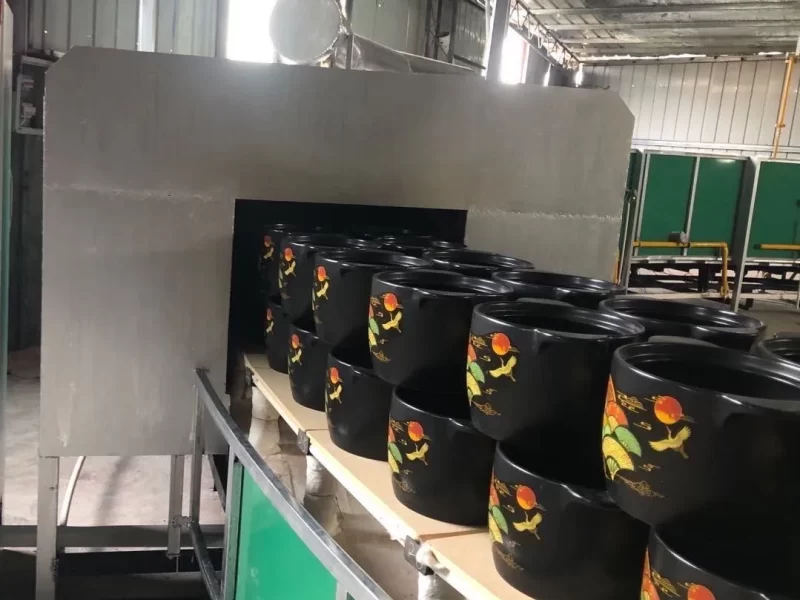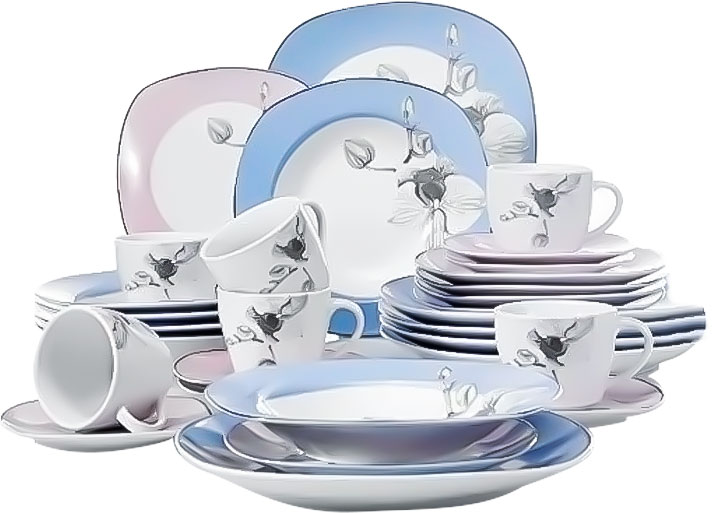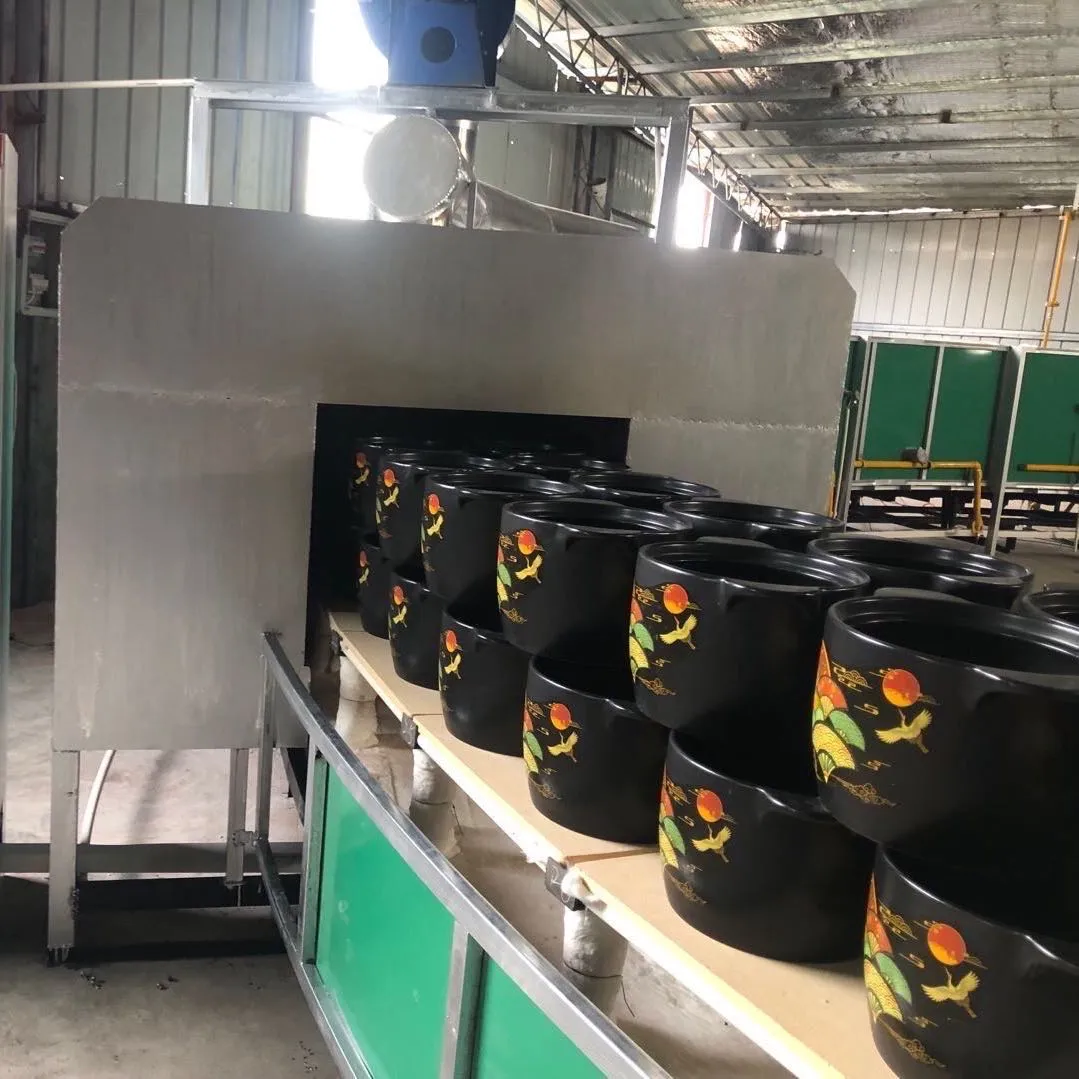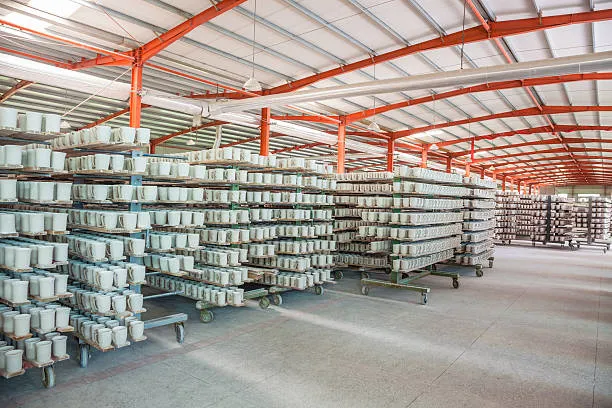
Die Schäden, die durch die unzureichende Festigkeit und die mittelmäßige Textur verursacht werden, werden zu einem unsichtbaren Hindernis für die Erhöhung des Preises von Keramikgeschirr und die Eroberung des Marktes für hochwertige Produkte. Als ein professioneller Hersteller von Keramikmaschinen, Yutai weiß, dass die Haltbarkeit und die attraktive Textur von wirklich exzellentem Geschirr nicht allein durch die Rezeptur von Ton und Glasur bestimmt wird. Die hochwertige KeramikbrennöfenDas Kernstück der Anlage, das den gesamten Prozess der keramischen "Wiedergeburt aus der Asche" steuert, ist das ultimative Schlachtfeld für Qualitätssublimation. Wir werden in der Tiefe erforschen wie hochwertige Keramikbrennöfen die Festigkeit und Textur von Keramikgeschirr verbessern können durch Optimierung des Brennvorgangs.
Genaue Temperaturkontrolle zur Vermeidung von Rissen und Verformungen
Der Brennprozess von Keramik ist sehr komplex und erfordert extrem hohe Temperaturen. Hochleistungs-Keramikbrennöfen verwenden fortschrittliche Temperaturregelungssysteme für eine präzise Temperaturregelung. Dies ist besonders wichtig beim Brennen von Keramikgeschirr, vor allem in der Hochtemperaturphase, in der winzige Temperaturunterschiede zu Rissen oder Verformungen des Keramikgeschirrs führen können.
Hochwertige Keramikbrennöfen von Yutai verwenden eine intelligente Temperaturkontrolle, um sicherzustellen, dass jede Charge von Keramikgeschirr in dem am besten geeigneten Temperaturbereich gebrannt werden kann, wodurch die Bildung von Rissen oder Verformungsfehlern aufgrund instabiler Temperaturen wirksam verhindert wird. Gleichzeitig wird die Haptik des Keramikgeschirrs dichter und die Festigkeit deutlich erhöht.
Gleichmäßiges Brennen zur Verbesserung der Gesamtfestigkeit
Zusätzlich zur präzisen Temperaturkontrolle, das Heißluftzirkulationssystem der hochwertigen Keramikbrennöfen sind ebenfalls äußerst wichtig. Unser einheitliche Brennöfen verfügen in der Regel über einen effizienten Mechanismus zur Heißluftzirkulation, um eine bessere Temperaturgleichmäßigkeit innerhalb des Ofens zu gewährleisten. Durch die gleichmäßige Erwärmung wird sichergestellt, dass das gesamte keramische Geschirr unter identischen Bedingungen gebrannt wird, so dass die physikalischen Eigenschaften der gesamten Charge des keramischen Geschirrs gleich bleiben.

Ein weiterer Vorteil des gleichmäßigen Brennens besteht darin, dass die Oberfläche des keramischen Geschirrs glatt ist und lokale Schwachstellen, die durch ungleichmäßiges lokales Brennen entstehen, vermieden werden. Dies trägt direkt zu einer höheren Druckfestigkeit und Haltbarkeit des Produkts bei, verringert die Bruchgefahr und verlängert die Lebensdauer des Produkts.
Hochtemperaturbrennen zur Verbesserung der Textur von Keramiken
Hochwertige Keramikbrennöfen kann höhere Brenntemperaturen vertragen, insbesondere beim Brennen von Porzellan; hohe Temperaturen sind der Schlüssel dazu. Dieses Brennen bei hohen Temperaturen kann nicht nur die Dichte und Festigkeit von Keramikgeschirr verbessern, sondern verleiht ihm auch eine feinere Textur und mehr Glanz.

Bei hohen Temperaturen werden die keramischen Rohstoffe wie Kaolin und Porzellanerde vollständig eingebunden, so dass die Oberfläche des Geschirrs einen zarteren Griff und höheren Glanz erhält. Darüber hinaus kann das Brennen bei hohen Temperaturen auch die Vorteile der Glasur voll zur Geltung bringen. Die Glasur wird gleichmäßiger, glatter und glänzender und erhöht die optische Schönheit des Keramikgeschirrs.
Vermeidung von schädlichen Gasen und Verbesserung von Gesundheit und Sicherheit
Sie müssen nicht nur Hochwertige Keramikbrennöfen die Festigkeit und Textur von Keramikgeschirr zu verbessern, aber auch die Umweltfreundlichkeit des Brennens wird gewährleistet. Hochwertige Keramikbrennöfen sind heute mit wirksamen Abgasbehandlungssystemen ausgestattet, die die beim Brennen möglicherweise entstehenden schädlichen Gase erheblich reduzieren können.

Dies ist besonders wichtig für Geschirr aus keramischen Werkstoffen, das für Lebensmittel verwendet wird. Durch die Verwendung umweltfreundlicher und hochwertiger Brennöfen kann sichergestellt werden, dass das Geschirr während des Prozesses nicht durch giftige Stoffe verunreinigt wird und schließlich eine Zertifizierung für Lebensmittelsicherheit erhält. Dadurch wird nicht nur die Sicherheit des Geschirrs verbessert, sondern auch seine Zuverlässigkeit und Wettbewerbsfähigkeit auf dem Markt als einheimisches Produkt.
Verbesserung der Produktionseffizienz und Gewährleistung der Konsistenz
Die Verwendung von automatische Keramikbrennöfen können nicht nur die Produktqualität, sondern auch die Produktionseffizienz verbessern. Moderne Brennöfen sind in der Regel mit automatischen Steuerungssystemen ausgestattet, die eine Chargenproduktion und eine präzise Steuerung des Brennprozesses jedes einzelnen Keramikprodukts ermöglichen. Auf diese Weise können die Hersteller hochfestes, hochwertiges Keramikgeschirr effizienter herstellen und gleichzeitig eine gleichbleibende Qualität für jede Produktcharge gewährleisten.

Durch eine effiziente Produktion und eine gleichbleibende Produktqualität können die Hersteller die Marktnachfrage nach hochwertigem Keramikgeschirr in großen Mengen befriedigen und gleichzeitig die Produktstabilität aufrechterhalten sowie Rücksendungen und Reklamationen aufgrund von Qualitätsproblemen reduzieren.
Schlussfolgerung
Hochwertige Keramikbrennöfen spielen bei der Keramikherstellung eine entscheidende Rolle. Von der präzisen Temperaturregelung über den gleichmäßigen Brand bis hin zur Verbesserung von Textur und Festigkeit des Geschirrs - die Leistung des Ofens entscheidet direkt über die Endqualität des Keramikgeschirrs. Wenn Sie nach einer Lösung suchen, mit der Sie die Qualität von Keramikgeschirr verbessern können, ist die Investition in einen hochwertigen Keramikbrennofen zweifellos eine kluge Entscheidung. Willkommen bei Kontakt zu Yutai für Produktkataloge und Kostenvoranschläge.

